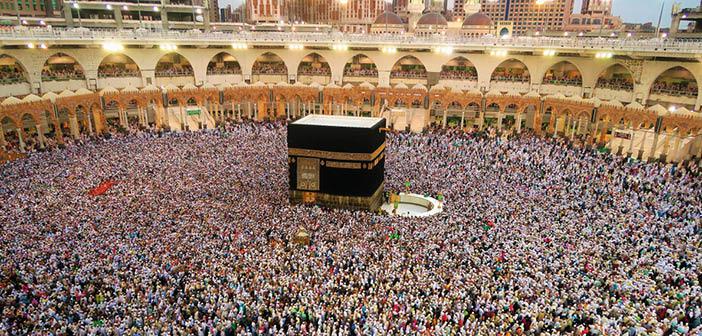
Features Of Islam Religion
What is religion? How many groups of religion are there? Explain the place of Islam among religions. What is the aim of Islam and what are the dimesnsions of Islamic rulings? What are the features of Islam? What are the features that make Islam universal?
Topics:
- What is religion?
- The place of Islam among religions
- The aim of Islam
- The feature of Islam
- The feature that makes Islam universal
WHAT IS RELIGION?
Religion is the divine law and set of instructions providing a rational human being with a guideline for the attainment of happiness and tranquility in this world and in the Hereafter.
Religions are divided into three types:
1) The true religion:
This is the religion of Allah that has been conveyed to people through prophets and that has not been altered or spoilt in any way until today. The only religion that fits into this category is our religion, Islam.
2) Corrupted religions:
These are the religions of Allah that have been altered and corrupted by people over time, even though they were conveyed to people through prophets.
3) Superstitious religions:
These are the religions made up by people. They do not have any relationship with the religions that were delivered by prophets.
THE PLACE OF ISLAM AMONG RELIGIONS
The first human being Adam is also the first prophet. The first religion conveyed to the humankind is also the true religion. All the prophets from Prophet Adam to Prophet Jesus conveyed the belief in the oneness of Allah to people. They also taught the humankind how to worship Allah. However, the principles of faith and the religious rulings that were conveyed by the prophets have been corrupted with time.
Consequently, Allah the Almighty sent the last and the perfect religion, Islam to humankind through the last Prophet Muhammad (saw). Today Islam is the only true religion in the world today. Superstitious religions have no value in the sight of Allah. The one and only religion according to Allah is Islam.
Allah (swt)[1] informed us about this in the Holy Qur’an as follows:
“Indeed, the religion in the sight of Allah is Islam.”2
“And whoever desires other than Islam as a religion – it will never be accepted from him, and he, in the Hereafter, will be among the losers.”3
THE AIM OF ISLAM
The rulings of Islam aim to make people attain happiness. People who act according to these rulings will achieve happiness both in this world and in the Hereafter.
Rulings in Islam have three dimensions:
1) Faith (Iman): A person can self-actualize himself by believing in the fundamental principles of faith, and by cleansing the heart from false beliefs and adorning it with true beliefs.
2) Deeds (Amal): Deeds are the actions that people undertake. Rulings in relation to deeds are divided into two:
- a) The duties to worship Allah.
- b) Rulings that regulate relations among people.
3) Morality: Rulings that regulate our thoughts and behavior towards other people.
THE FEATURE OF ISLAM
Islam is the last religion and so, there will be no other religion after it. Its rulings will be valid until the Judgment Day. Muhammad (saw), who conveyed the religion of Islam to people, is the last Prophet and no other prophet will come after him. Islam is a universal religion. Whilst the previous prophets conveyed religion to particular nations, Islam was sent to the whole of nations. The rulings of Islam are perfect and can fulfil all of the needs of people. Islam accepts all of the prophets and divine books that Allah sent previously.
Islam abrogated rulings enforced by the religions that the previous prophets conveyed. This is because they were sent to particular nations for a limited period. Whereas Islam is the religion that was sent to the whole of humankind, and it will continue to exist without alteration until the Day of Judgment.
THE FEATURE THAT MAKES ISLAM UNIVERSAL
There are many features that make Islam universal. Some of these are as follows:
- Islam is the last religion sent to the whole of humankind:
Islam is the last divine religion sent to the whole of humankind, and it will continue to exist until the Day of Judgement. Thus, our Prophet, with the aim of conveying the message of Islam to all nations, sent letters calling upon all of the neighboring emperors and kings to accept Islam.
- Islam is the religion of reason and knowledge:
Islam places great importance on reason and sanity. Being sane is one of the conditions for a person to be held accountable for religious obligations. Attaching much importance on knowledge, our religion commands reading and learning and informs that learning is fardh (obligatory) for every Muslim.
- Islam is the religion for both this world and the Hereafter:
The aim of Islam is to bring people happiness both in this world and in the eternal life of the Hereafter. By providing necessary principles that answer the needs of individuals and communities in every age, our religion ensured people’s happiness in this world and in the Hereafter.
The following Prophetic tradition summarizes the Islamic principle of how to strike a balance between this world and the Hereafter: “Work for this world as if you are never going to die, work for the Hereafter as if you are going to die tomorrow.”
- Islam is the religion of ease:
Islam favors ease over hardship. The commandments of our religion aim to make us more mature and prepare us for an exalted life. Our religion wants us to perform worship according to our strength and abilities.
For example, a traveler may reduce all obligatory four-rakah prayers to two-rakahs during his/her trip. Moreover, a person may perform his/her prayers in a sitting position, if he/she cannot stay in a standing position. People who do not have enough strength or are sick during Ramadan can fast (sawm) after they recover. Those who have no hope of recovering from their illness and the elderly can pay a certain amount of money (i.e. fidya), in order to compensate for their religious obligation of fasting. Likewise, there are several other cases when Islam allows Muslims to perform their religious duties in an easier manner in accordance with their strength and capacity. Therefore, the rulings of Islam is practicable at any time and anywhere.
- There is no room for extremism in Islam:
Islamic rulings are the most compatible ones for the human mind and disposition. Our duty is to comply with these rulings.
Islam recommends modesty. Therefore, it is not acceptable to be harsh on oneself and live a purely ascetic life by avoiding worldly blessings that are halal (permissible) and by going exteremes on behalf of the religion, even though it is not ordered as such.
- Islam is the religion of peace and love:
One another aim of Islam is to ensure sustainable peace and tranquility in society by placing love and respect into people’s heart. With this objective in mind, our religion has developed many rules, and has considered respect and love for others a requisite to be a true Muslim.
Source: Presidency Of Religious Affairs The Turkey, Basics of Islam, Seyfettin Yazıcı











